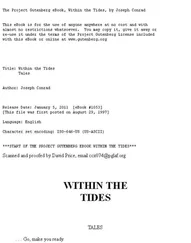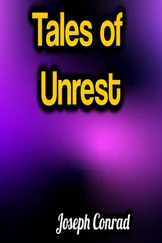William Collins
An imprint of HarperCollins Publishers
1 London Bridge Street
London SE1 9GF
WilliamCollinsBooks.com
This eBook published by William Collins in 2015
Life & Times section © HarperCollins Publishers Ltd
Gerard Cheshire asserts his moral right as author of the Life & Times section
Classic Literature: Words and Phrases adapted from
Collins English Dictionary
Cover by e-Digital Design. Cover image: The Meeting Place , 1915 (oil on canvas), William Strang (1859–1921)/Private Collection/Photo © Christie’s Images/Bridgeman images
A catalogue record for this book is available from the British Library
All rights reserved under International and Pan-American Copyright Conventions. By payment of the required fees, you have been granted the non-exclusive, non-transferable right to access and read the text of this e-book on-screen. No part of this text may be reproduced, transmitted, down-loaded, decompiled, reverse engineered, or stored in or introduced into any information storage and retrieval system, in any form or by any means, whether electronic or mechanical, now known or hereinafter invented, without the express written permission of HarperCollins.
Source ISBN: 9780008110482
Ebook Edition © January 2015 ISBN: 9780008110499
Version: 2014-12-18
In 1819, millworker William Collins from Glasgow, Scotland, set up a company for printing and publishing pamphlets, sermons, hymn books, and prayer books. That company was Collins and was to mark the birth of HarperCollins Publishers as we know it today. The long tradition of Collins dictionary publishing can be traced back to the first dictionary William published in 1824, Greek and English Lexicon . Indeed, from 1840 onwards, he began to produce illustrated dictionaries and even obtained a licence to print and publish the Bible.
Soon after, William published the first Collins novel, Ready Reckoner ; however, it was the time of the Long Depression, where harvests were poor, prices were high, potato crops had failed, and violence was erupting in Europe. As a result, many factories across the country were forced to close down and William chose to retire in 1846, partly due to the hardships he was facing.
Aged 30, William’s son, William II, took over the business. A keen humanitarian with a warm heart and a generous spirit, William II was truly “Victorian” in his outlook. He introduced new, up-to-date steam presses and published affordable editions of Shakespeare’s works and The Pilgrim’s Progress , making them available to the masses for the first time. A new demand for educational books meant that success came with the publication of travel books, scientific books, encyclopedias, and dictionaries. This demand to be educated led to the later publication of atlases, and Collins also held the monopoly on scripture writing at the time.
In the 1860s Collins began to expand and diversify and the idea of “books for the millions” was developed. Affordable editions of classical literature were published, and in 1903 Collins introduced 10 titles in their Collins Handy Illustrated Pocket Novels. These proved so popular that a few years later this had increased to an output of 50 volumes, selling nearly half a million in their year of publication. In the same year, The Everyman’s Library was also instituted, with the idea of publishing an affordable library of the most important classical works, biographies, religious and philosophical treatments, plays, poems, travel, and adventure. This series eclipsed all competition at the time, and the introduction of paperback books in the 1950s helped to open that market and marked a high point in the industry.
HarperCollins is and has always been a champion of the classics, and the current Collins Classics series follows in this tradition – publishing classical literature that is affordable and available to all. Beautifully packaged, highly collectible, and intended to be reread and enjoyed at every opportunity.
Life & Times
About the Author
Joseph Conrad had a highly imaginative and creative mind, given to bouts of emotional distress and apathy, but also incredibly driven by his desire for self-expression. Throughout his life his mood would swing back and forth from elation to depression and it has been said that in his darkest moments he contemplated suicide and even attempted it on one occasion, by shooting himself in the chest, although he made a full recovery. On the other hand, his lucid periods resulted in English prose of the first order and an ability to befriend and entertain those around him. With our modern knowledge of the interior psyche, it seems reasonable to conclude that Joseph Conrad may have displayed classic symptoms of bipolar disorder, or what used to be described as ‘manic depression’.
Conrad had a less than desirable childhood, which may account for his psychological profile. He was born into Polish nobility in a region that is now part of Ukraine. Despite this promising start his father was arrested for political activism and exiled to the Russian town of Vologda, northeast of Moscow. One thing led to another and Conrad – at that time named Józef Teodor Konrad Korzeniowski – found himself orphaned at the tender age of 11. He spent the next five years in the charge of his uncle, but left home at 16. His first port of call, quite literally, was Marseille, France, where he enlisted into the French merchant navy and his seagoing adventures began. Conrad spent a 20-year period at sea and his experiences provided the foundation for his literary career. His travels took him to South America, Africa and Asia and he eventually married and settled in England, by now fluent in English and choosing to write in that language, making his prosaic achievements all the more remarkable. At this time he also anglicised his name to Joseph Conrad.
Although Conrad set his stories in exotic places and spun a good yarn, his primary agenda was to use his fiction as a vehicle for investigating human nature – specifically the human condition. Having lost both of his parents, experienced unrequited love and witnessed hardship and cruelty on his journeys, he was perplexed by his own species. He saw that the world is unfair and that people can possess complex ideas and behaviours that can, by turns, make the world a wonderful place or a living hell. He wanted to express his feelings about such contradictions in his books. Perhaps unsurprisingly, his sombre and sobering words were not well received by the novelbuying public and commercial success was not forthcoming. He was, however, praised by literary critics who saw the genius in his intentions and recognised that a lighter touch would be inappropriate. As a result he developed a kind of cult following with those ‘in the know’ – especially fellow writers, who admired his uncompromising and deeply moralistic style.
In Lord Jim (1900) Conrad investigated selfishness, cowardice and dishonour. The eponymous Jim is a member of the crew of a ship who commit the shameful crime of abandoning a boat and its passengers, rather than remaining onboard as ethical law would have expected of them. He finds himself professionally castigated for his misconduct and has to move on from one job to the next whenever his ignominy is discovered. Eventually he finds employment in a place where his past does not catch up with him, so his opprobrium ends, except that he is perpetually troubled by his own conscience. In his new environment he makes an impression and becomes known as ‘Lord Jim’, such is the respect and adoration he receives from the locals. However, events unfold that lead to the killing of the son of a tribal leader. Haunted by his past shame, Jim decides to take the blame and is executed as retribution. Thus, he goes to the grave at peace with himself.
Читать дальше












